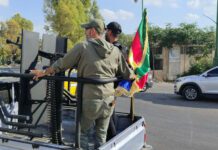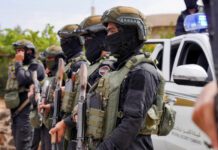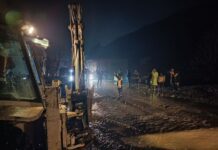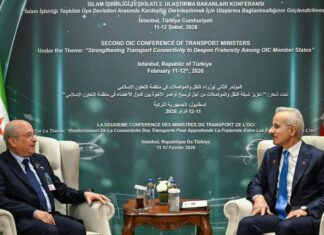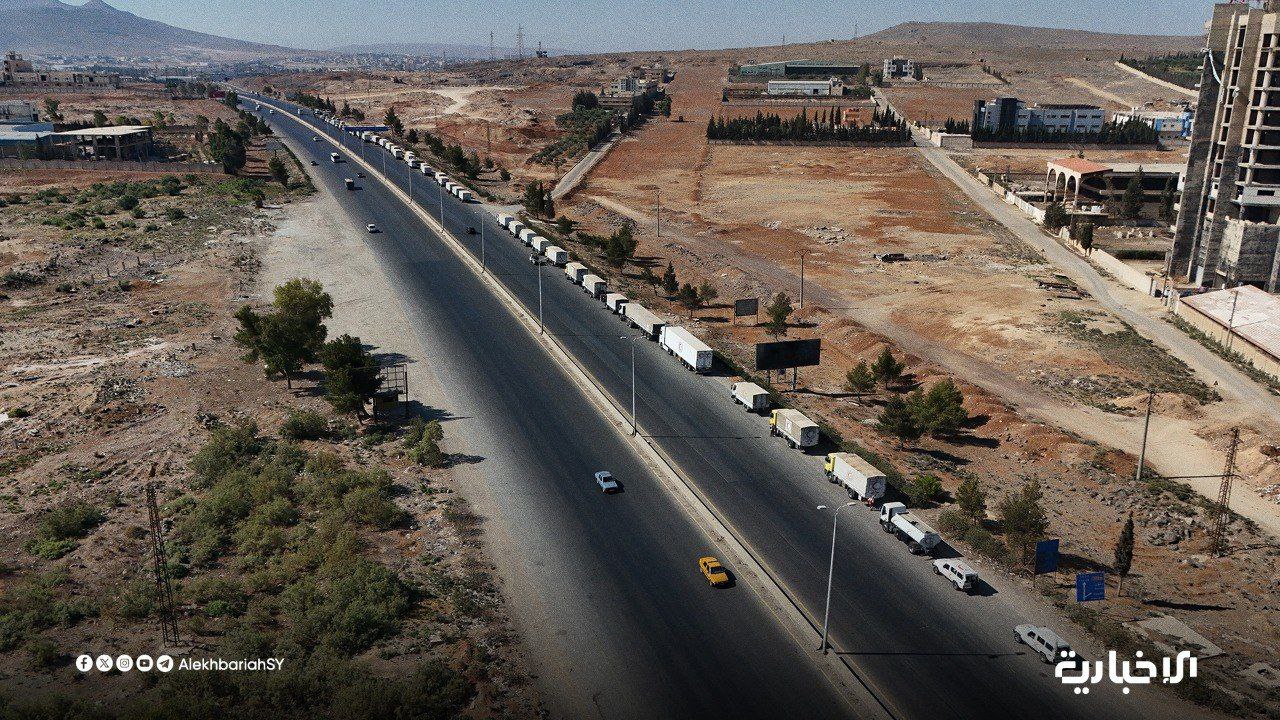
The Syrian government initiated a phased stabilization effort in Suwayda Governorate, evacuating tribal families detained amid recent violence and working to restore essential services. Authorities have framed the operation as a humanitarian necessity, while tensions remain with Israeli-backed separatists from the Hikmat al-Hijri movement opposing state involvement.
On Monday, government buses evacuated approximately 300 tribal civilians from Suwayda to Daraa, as part of what officials call a temporary protective measure. Brig. Gen. Ahmad al-Dalati, head of internal security in Suwayda, emphasized the state’s commitment to ensuring safe returns once conditions permit. “The priority is to stabilize the ceasefire and meet humanitarian needs,” Dalati said. He ruled out any federalist or separatist agendas, asserting that preserving Syria’s unity remains non-negotiable.
Humanitarian Response Ramps Up
More than 93,000 people have been displaced across Suwayda, Daraa and Rural Damascus, according to the UN Office for the Coordination of Humanitarian Affairs (OCHA). In response, government-affiliated agencies and civil society groups launched a coordinated aid campaign.
The Syrian Arab Red Crescent (SARC) delivered medical and food supplies to affected areas, countering online rumors that expired goods had been distributed. Omar al-Maliki, SARC’s media director, clarified the mislabeled footage came from old inventory being prepared for disposal.
Meanwhile, the Ministry of Social Affairs and Labor dispatched independent convoys from Damascus and Aleppo. Director Dania al-Mafalani stated that shelters are prioritizing vulnerable groups, including children, the elderly and the sick. Aid included thousands of food baskets, blankets and hygiene items.
Obstacles on the Ground
Despite calm in parts of the province, the situation remains fragile. A humanitarian worker, Hamza al-Amarin of the Civil Defense Organization, was abducted last week while assisting in a UN-backed evacuation. The White Helmets accused local armed factions of the kidnapping, calling it a grave breach of humanitarian neutrality.
“The safety of aid workers must be guaranteed so services can reach those in desperate need,” the organization said in a statement on Monday. Local sources report severe shortages of medicine, food and water, with Shahba Hospital on the brink of collapse due to supply depletion. The government is working to reactivate public institutions, but Governor Mustafa al-Bakour acknowledged that security instability still hinders full recovery efforts.
Ceasefire Holds as Political Path Emerges
A fragile ceasefire brokered with US support took effect Sunday, halting days of deadly clashes that left hundreds dead, according to the Syrian Network for Human Rights (SNHR). Interior Minister Anas Khattab said the truce aims to allow hostage releases and begin reconciliation.
Still, allegations of Israeli involvement have deepened distrust. While Israel reportedly sent aid to Suwayda in coordination with Washington, Druze leader Hikmat al-Hijri refused entry to a Syrian government convoy, signaling persistent resistance to central authority and ongoing deprivation of services for thousands of Suwayda residents.
As the government works to consolidate calm and expand aid access, officials say broader political dialogue will follow. “There will be discussions with Suwayda’s people about the future, once safety is assured,” Dalati said.

